
Melbourne Documentary Film Festival: ‘Insert Coin’ features an unsung hero
When it comes to the video game industry, oftentimes people overlook the arcade game developers. Designing games based off of what will be popular at arcades is asking a lot, but legendary designer Eugene Jarvis designed some of the biggest arcade games of all time like NBA Jam, Defender, and of course, Mortal Kombat.
Director Joshua Tsui is taking on the legend’s career in his new documentary Insert Coin. Premiering at the Melbourne Documentary Film Festival, the film covers how Jarvis became the biggest developer and created some of the most influential games of all time.
We spoke with Tsui about the film and his time with Jarvis’ company Midway Games.

What made you want to become a documentary filmmaker?
I had been fascinated by documentaries since my film school days as it was a medium where big ideas and stories can be communicated in a variety of ways. Especially nowadays where filmmakers can apply so many different techniques such as animation, motion graphics, photography so much easier than before. For me, it felt like a very attainable gateway into feature filmmaking on my own terms.
What’s one movie that inspired you to become a filmmaker?
That’s a tough one. Like many people my age, Star Wars was hugely influential as a kid. The world building was just so well done, it showed a lot of thought being put into even minute details. In regards to documentaries, I was very much inspired by The Thin Blue Line and Tokyo Game, both of which I had seen in my film school days.
Thin Blue Line was the first documentary I had seen where the storytelling was so gripping. Tokyo Game lulled me into a dream state and made me appreciate Ozu films.
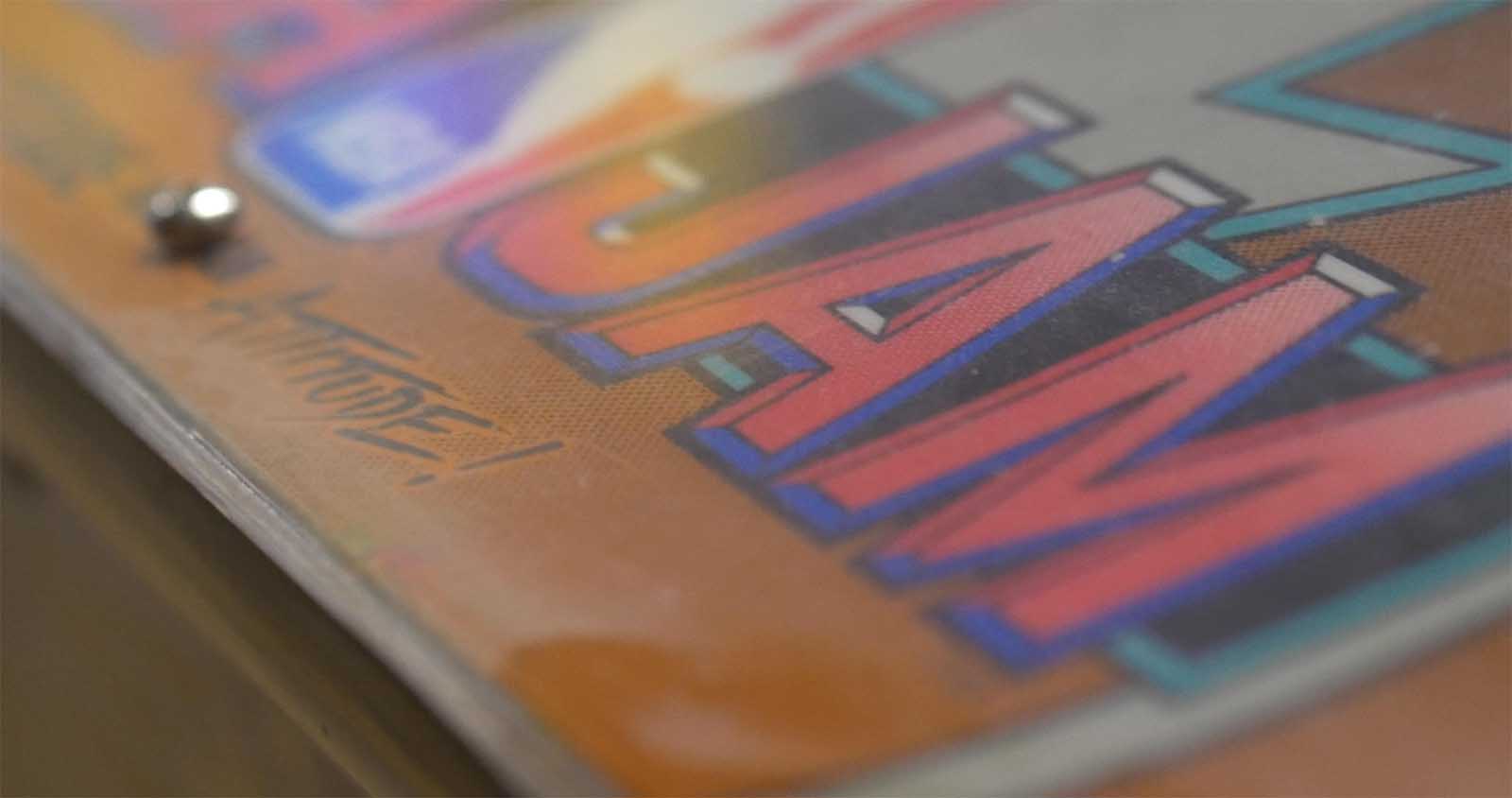
What inspired you to focus on arcade games as a documentary subject?
The subject is near and dear to me as I worked at the company (Midway Games) during the period that is discussed in the film. Even back then I knew people around me were making history so I soaked it all in.
20+ years later I was really looking to branch out creatively and I realized nobody had created a film about this company during this era. It felt like if I don’t do this someone else will, so I took the plunge.
Were you always planning on covering Eugene Jarvis’ career?
Initially, no. I knew that Jarvis would be one of the major components but most people think about his 80s games such as Defender, which was a monster hit. The original intent was to just follow a couple of games such as Mortal Kombat and NBA Jam.
But as I had interviewed more people, Jarvis would always get brought up. His influence inspired these games even when he wasn’t there. He truly is the godfather of video games!

What was it like working with Jarvis and co-workers of his?
Working with the crew was simply amazing. Jarvis is one of the nicest persons around. When I started at Midway my jaw dropped that one of my 80s video game heroes was still there. He was super gracious to me and always listened to anything. In general that entire 90s crew was amazing to be around.
But it was also super competitive. Management liked having all the teams compete with each other which was both beneficial and harmful at the same time.
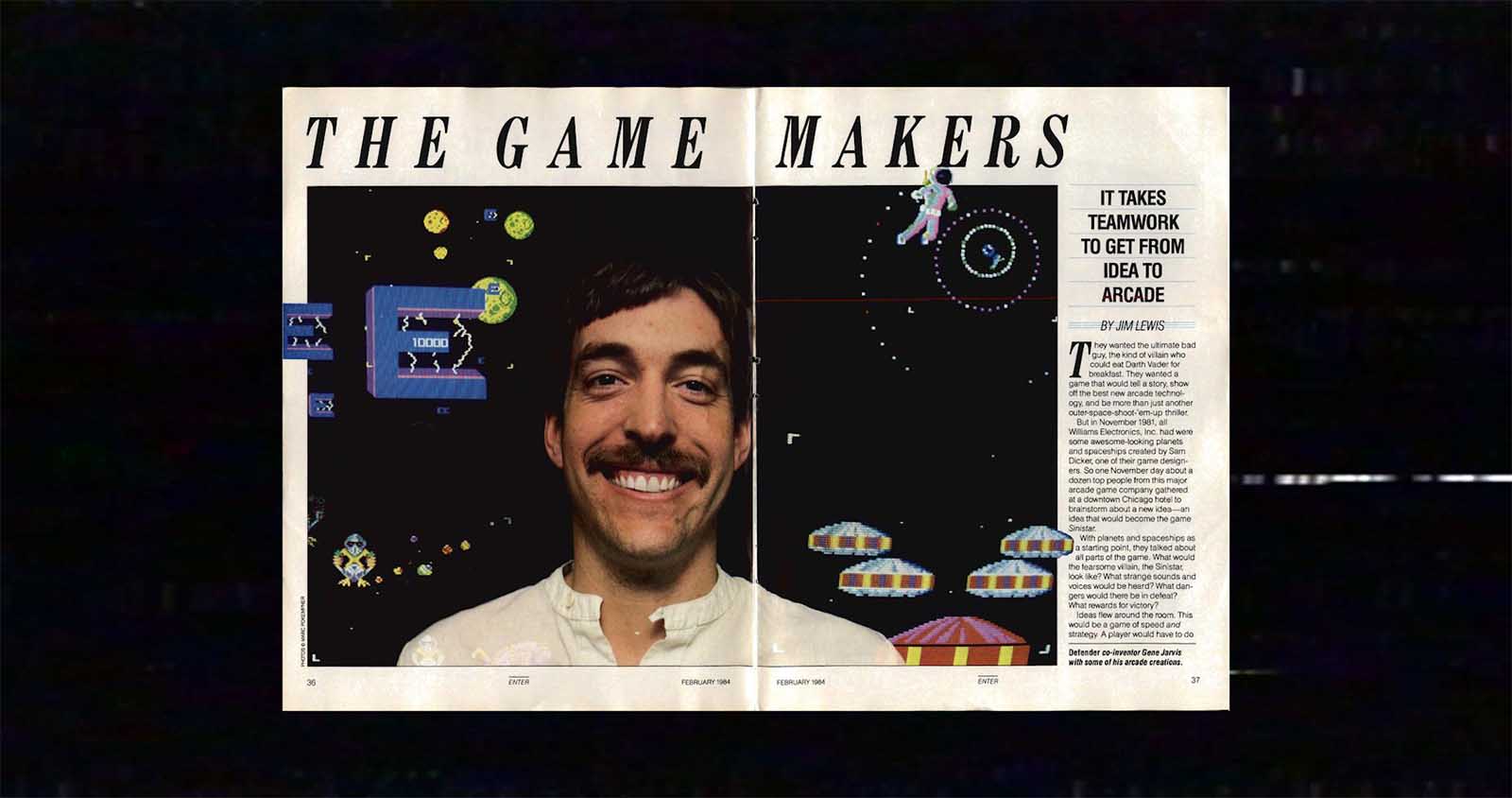
What’s your favorite arcade game?
Super tough to decide here as I was a super arcade rat across multiple decades. In the 80s I was way into Missile Command, Robotron, and Defender.
90s was a lot of NBA Jam and Mortal Kombat, not because I worked at Midway during that time but because they were great games. Especially NBA Jam, that was a game that crossed demographics. People who don’t play videogames get obsessed with it.
While in production on Insert Coin, you wore a lot of hats. What was that like?
That was not supposed to be the plan. I originally wanted to just do the interviews and create the rough cut. From there, hand off to various people to finish. As the production went along, I found myself enjoying learning new things as I went.
Eventually I took on more and more of the production as it felt like I was going through the grad school I never had so I took advantage of that. There were certain parts I did not want to completely take on myself. Sound design for one, that’s something I learned you bring in big guns to work on from my video game development days. I was also very blessed to have Savant creating an original soundtrack for the film.
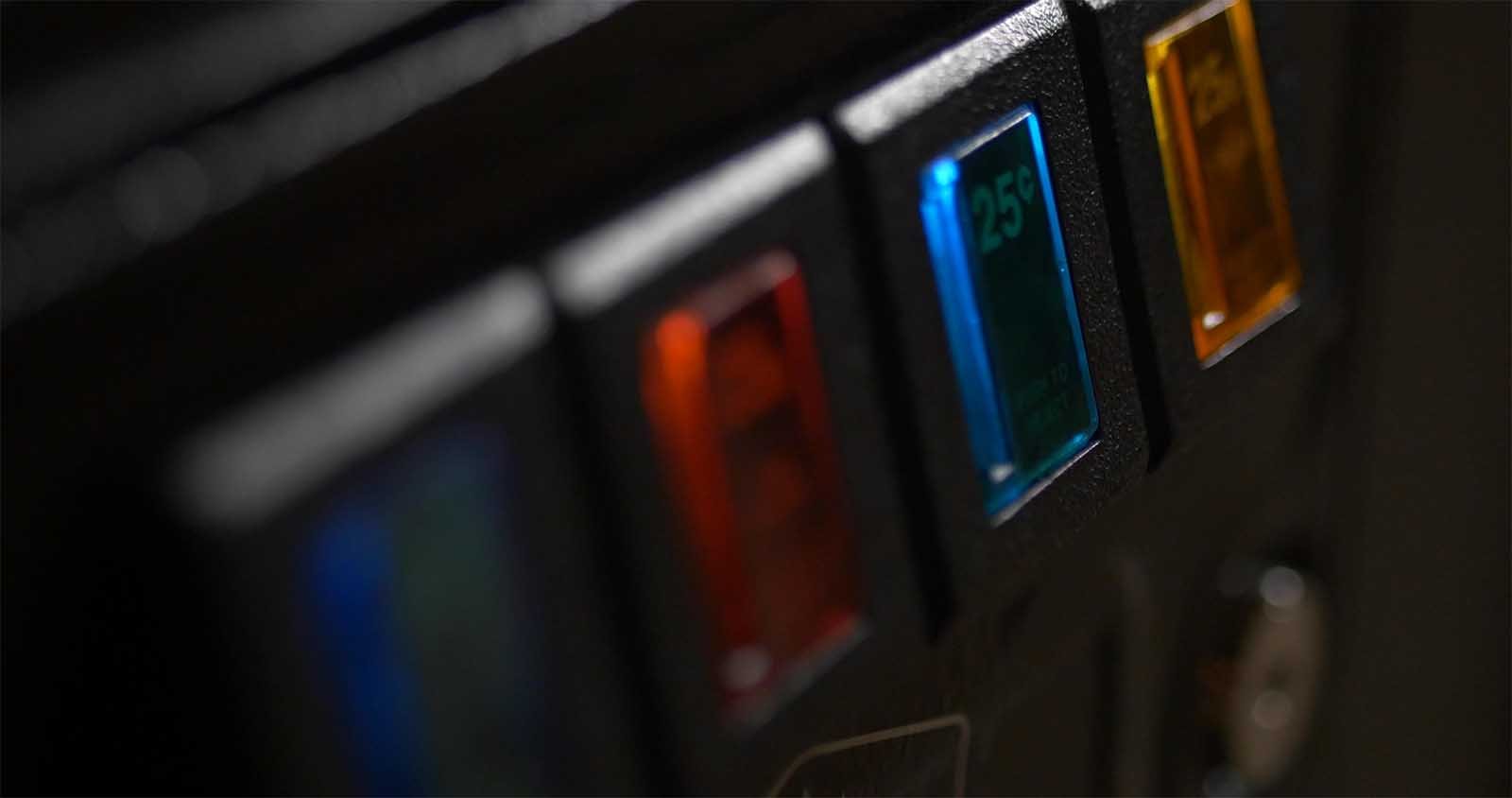
Talk us through your creative process.
I mainly started with a rough idea of what the story may be, based on my own experiences with the company. From there it was mainly just interviewing who I felt were the main people for the film.
I had gotten good advice to make sure to keep myself open to any new stories and not get so focused on what my initial story was going to be. This proved hugely beneficial as I was able to adjust my questions with each subsequent interview and often going back to re-interview people.
From there it was a lot of editing based on the interview transcripts. I had edited multiple mini films based on each game of that era. This allowed me to see which game would hit certain themes and/or topics. That helped inform me in regards to which games/subject would be kept for the film’s flow. After that, it’s chop chop and chop until someone rips the film out of my hands!
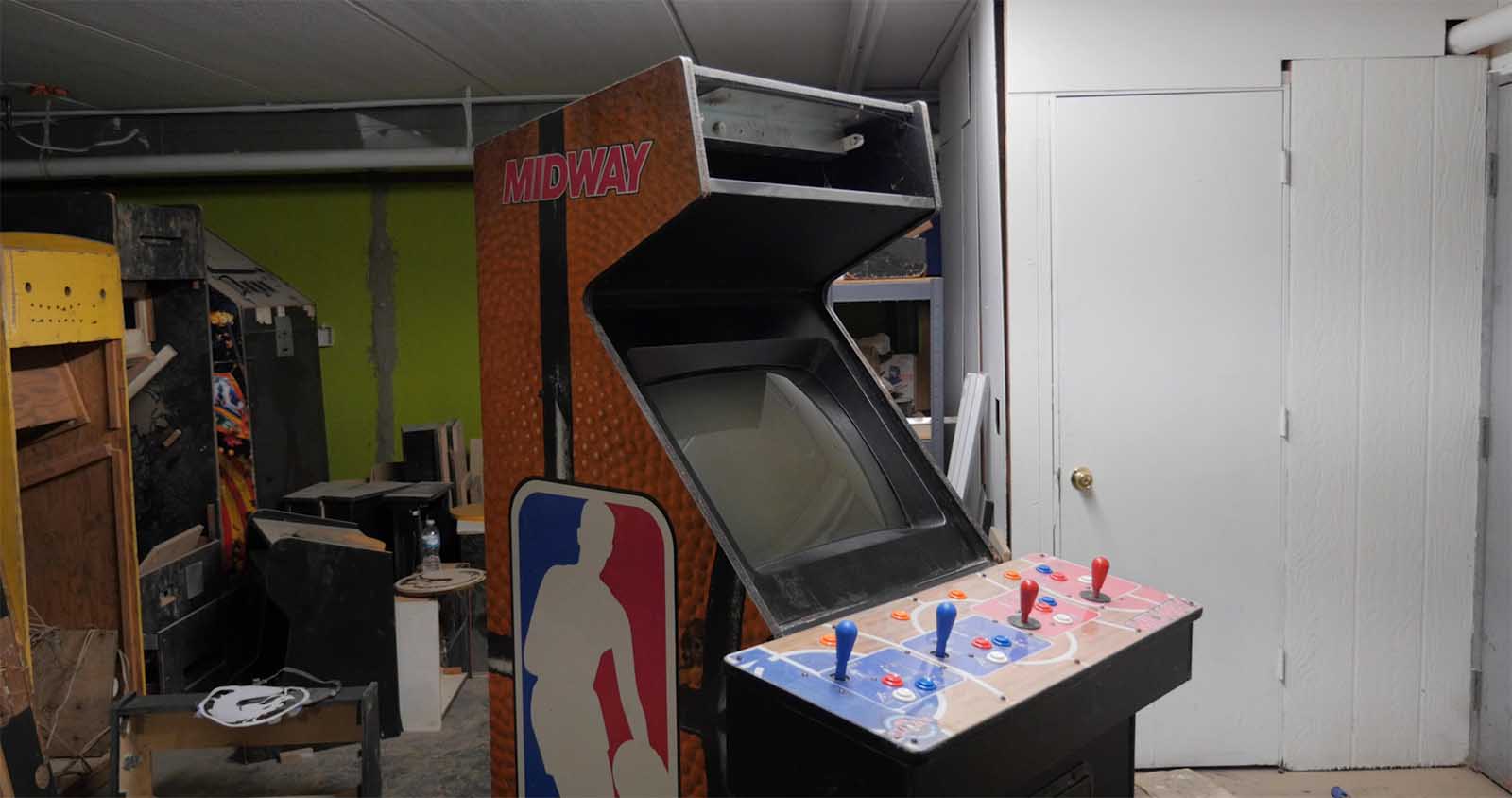
What would be your dream documentary subject?
Even though one had just come out, I’d still like to do something on Bruce Lee. Like many Chinese my age, he was beyond just a hero. I was obsessed by him and his films when I was a kid and it really helped me through some tough times.
Do you think Insert Coin helped the conversation around arcade games?
I’d like to think so. The film is less about geeking out over the games and more about the decision making and business behind something people loved from their childhoods.
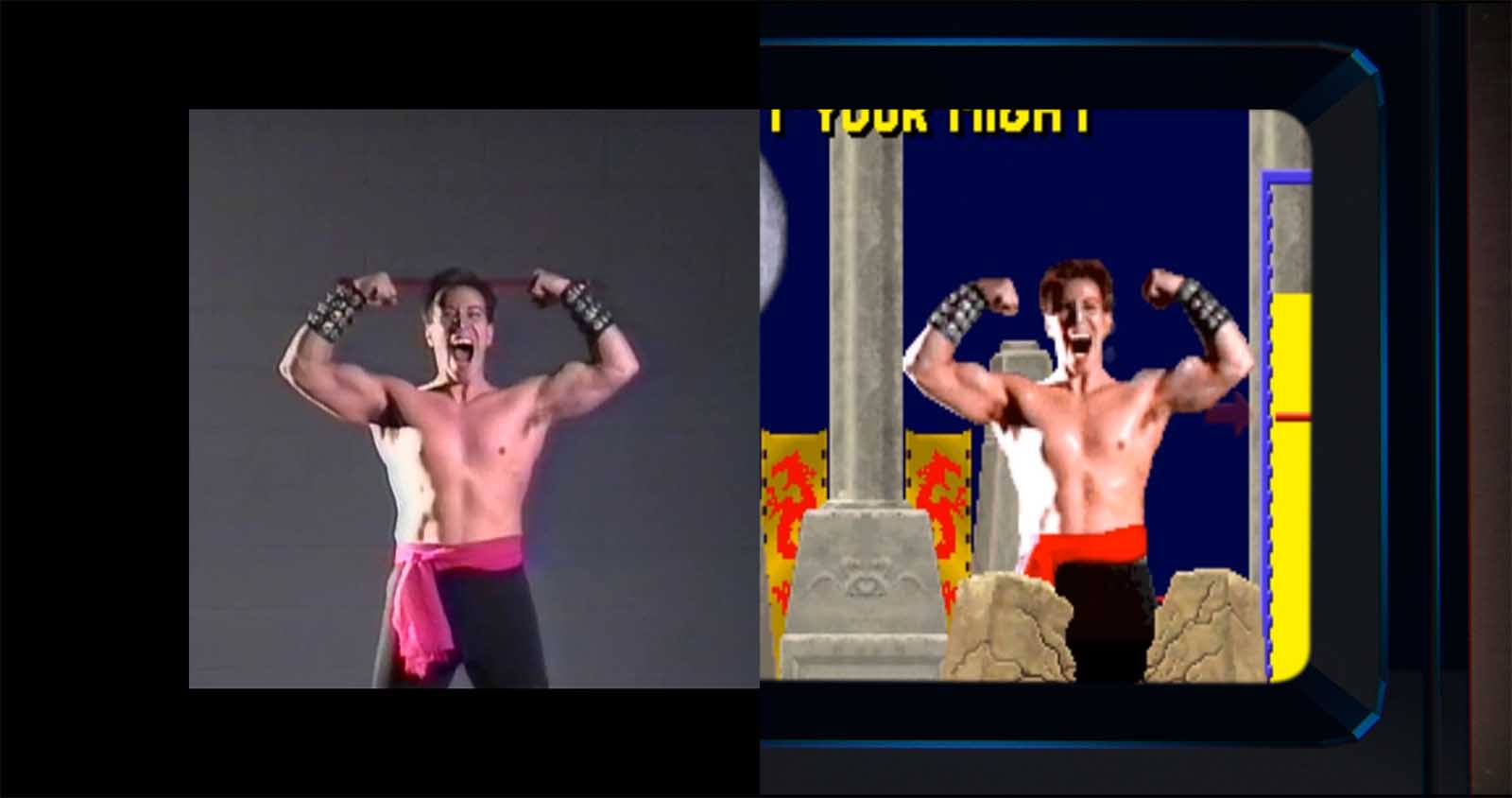
What are some common misconceptions people have about developing arcade games?
I think people didn’t realize how design decisions were made based on economics, not just fun. These games were designed a certain way for a reason, to make you drop quarters every 30 seconds. Obviously it has to be fun or you’ll never get the quarters at all.
But there was a lot of design focus on making certain events happen to push and pull the player to keep going and spending money. For a long time that design style went away with console gaming taking dominance. But now you see it coming back with the mobile games era.
Why do you think documentaries are important?
I’m a first time documentarian so obviously take this with a grain of salt. I feel they’re important because it’s showing people truths in a creative way that embeds into their minds in ways that news or fictional films can’t, even with the same themes and subjects.
Do you believe documentary filmmakers have a responsibility to make films that change the conversation on their subject material?
I believe so, otherwise why bother? If you’re producing something that doesn’t surprise people in some fashion then what is the point? My film is about a very light subject compared to all that’s going on in the world but I wanted to make a point of bringing up information that would surprise those who loved these games in a creative way. Make them want to revisit their childhood after seeing it.

Where do you see yourself in five years?
Ideally I would have made 1 or 2 more docs and it’s my full time obsession. My hope is that I can work in subjects I hold dear as this film was a passion project and I was very privileged to be able to pull it off.
Do you have any indie filmmakers we should be keeping on our radar?
I’m sure they’re both on your radars, I was so blown away by both Minding the Gap by Bing Liu and Roll Red Roll by Nancy Schwartzman. Both great films and so creative with their storytelling
What’s next on the docket for you?
I’m currently working on a “secret” project involving an immersive theater. Very excited by this as I’m producing both the film and the theater itself. Outside of that, juggling 3 very different subjects for a possible next film.
If one director could direct the story of your life, who would you choose and why?
I really am impressed by directors who can do both narrative and documentary work so well. So I’d say Wim Wenders. I had seen Wings of Desire and Tokyo Game almost at the same time and was just blown away by both.







